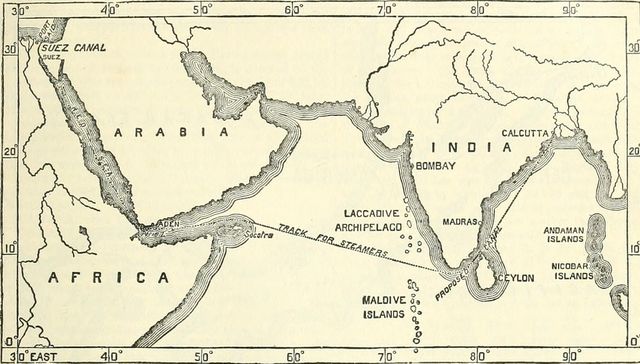4.1.1
Reasons for Decolonisation
Historical Debate - Reasons for Decolonisation
Historical Debate - Reasons for Decolonisation
The greatest debate about decolonisation explores whether independence was wrested from below, or whether Britain remained in control and granted freedom to her former territories.


Economic impact of WW2
Economic impact of WW2
- The economic impact of WW2 had left Britain in an economically precarious position.
- Britain was unable to continue ploughing money into colonial wars.
- Historian John Strachey in The End of Empire (1959) argued that British decolonisation was a result of the political shift in the post-WWII government. Building the Welfare State was seen as preferable to colonial control.


Reliance on the US
Reliance on the US
- Britain’s growing relationship with (and reliance on) the USA made maintaining an Empire difficult.
- Anti-colonial in its nature, USA would not allow the money they gave Britain to be used to prop up its Empire.
- In the age of the Cold War, sustaining a close relationship with the USA became vital.
- Historian Stuart Easton in The Twilight of European Colonialism (1960) argues that Britain wanted to keep an Empire, but was unable to do so in the broader context of the Cold War. Britain could not match the ideological, economic or military power of the USA or USSR.


Nationalist movements
Nationalist movements
- The emergence of nationalist movements within the colonies challenged British hegemony.
- Charismatic leaders often unified independence movements.
- Henri Grimal in Decolonisation: The British, French, Dutch and Belgian Empires, 1919 – 1963 (1965) argues that independence was wrested from the British by the strength of the local populations and their willingness to oppose the colonial rule.
- If local populations do not want foreign rule and are protesting more vehemently, handing over control seems fair. However, this had been true in many places throughout their occupation.


The strength of Western Europe
The strength of Western Europe
- The rapid recovery of Western Europe and the growing strength of the EEC (European Economic Community) shocked much of the West.
- It suggested to Britain that it was in Europe, rather than its Empire, where its economic future and prosperity lay.
- Historian Paul Baran, in The political economy of growth (1957) argues that decolonisation was rooted in the international shift in the structure of capitalism in the postwar era. Multinational companies saw old colonial structures as a threat.
Historical Debate - When did the British Empire Collapse?
Historical Debate - When did the British Empire Collapse?
The timeline of decolonisation is just as debated by historians as the causes of decolonisation. Historians also debate the extent to which Britain was in control of the process of decolonisation.


Britain in control
Britain in control
- Former British Prime Minister Harold Macmillan in Pointing the Way (1972) argued that Britain’s Empire was always planning to fall, following the pattern of other great Empires. He thought that Britain was in control of the process throughout.


Economic imperialism
Economic imperialism
- Historian Catherine Schenk argues in Britain and the Sterling Area: From Devaluation to Convertibility in the 1950s (1994) that Britain aimed to convert the Empire into a more informal economic imperialism, hence the collapse of formal colonial rule.


Deep roots
Deep roots
- Historian Ronald Hyam argues in Britain's Declining Empire: The Road to Decolonisation, 1918-1968 (2007) that the roots of decolonisation were in WWI and the 1930s Depression, not the Second World War.


Crunch point
Crunch point
- Historian Roger Louis argues in Ends of British Imperialism: The Scramble for Empire, Suez, and Decolonization (2006) that the Suez Canal Crisis was the crunch point for Britain’s Empire and the point at which decline was irreversible.
1High Water Mark of the British Empire, 1857-1914
1.1Development of Imperialism, 1857-1890
1.2Imperial & Colonial Policy, 1857-1890
1.3Trade & Commerce, 1857-1890
1.4Attitudes Towards the Empire, 1857-1890
1.5Relations with Indigenous Peoples, 1857-1890
2Imperial Consolidation & Liberal Rule, 1890-1914
2.1Consolidation & Expansion in Africa, 1890-1914
2.2Imperial & Colonial Policy, 1890-1914
2.3Trade & Commerce, 1890-1914
2.4Attitudes Towards the Empire, 1890-1914
2.5Relations with Indigenous Peoples, 1890-1914
3Imperialism Challenged, 1914-1967
3.1Expansion & Contraction of Empire, 1914-1947
3.2Colonial Policy & Administration, 1914-1947
3.3Trade, Commerce & Economic Impact of War
3.4Attitudes Towards the Empire, 1890-1914
3.5Relations with Indigenous Peoples, 1914-1947
4The Wind of Change, 1947-1967
4.1Decolonisation in Africa & Asia, 1947-1967
4.2Colonial Policy & Administration, 1947-1967
4.3Trade & Commerce, 1947-1967
4.4Attitudes Towards the Empire, 1947-1967
4.5Post-Colonial Ties, 1947-1967
4.6Relations with Indigenous Peoples, 1947-1967
Jump to other topics
1High Water Mark of the British Empire, 1857-1914
1.1Development of Imperialism, 1857-1890
1.2Imperial & Colonial Policy, 1857-1890
1.3Trade & Commerce, 1857-1890
1.4Attitudes Towards the Empire, 1857-1890
1.5Relations with Indigenous Peoples, 1857-1890
2Imperial Consolidation & Liberal Rule, 1890-1914
2.1Consolidation & Expansion in Africa, 1890-1914
2.2Imperial & Colonial Policy, 1890-1914
2.3Trade & Commerce, 1890-1914
2.4Attitudes Towards the Empire, 1890-1914
2.5Relations with Indigenous Peoples, 1890-1914
3Imperialism Challenged, 1914-1967
3.1Expansion & Contraction of Empire, 1914-1947
3.2Colonial Policy & Administration, 1914-1947
3.3Trade, Commerce & Economic Impact of War
3.4Attitudes Towards the Empire, 1890-1914
3.5Relations with Indigenous Peoples, 1914-1947
4The Wind of Change, 1947-1967
4.1Decolonisation in Africa & Asia, 1947-1967
4.2Colonial Policy & Administration, 1947-1967
4.3Trade & Commerce, 1947-1967
4.4Attitudes Towards the Empire, 1947-1967
4.5Post-Colonial Ties, 1947-1967
4.6Relations with Indigenous Peoples, 1947-1967
Unlock your full potential with Seneca Premium
Unlimited access to 10,000+ open-ended exam questions
Mini-mock exams based on your study history
Unlock 800+ premium courses & e-books